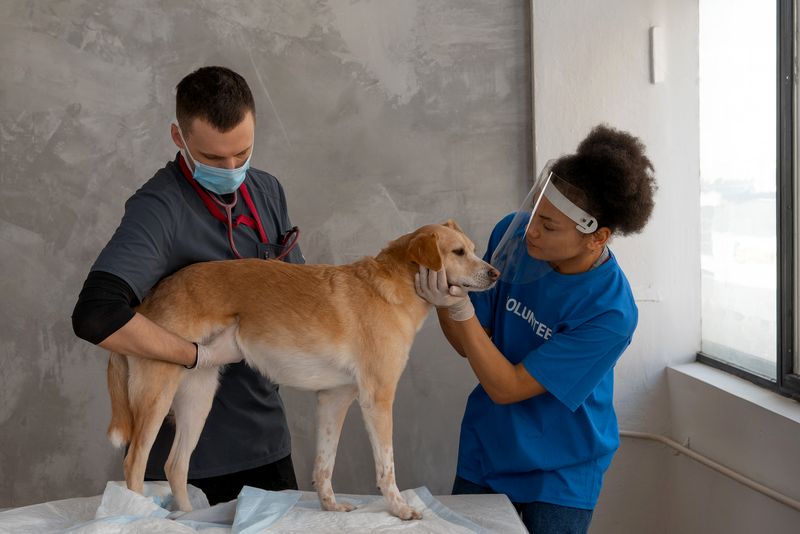Dog Poisoning, how to help

Understanding Dog Poisoning: A Critical Guide for Pet Owners
According to the American Society for the Prevention of Cruelty to Animals (ASPCA), over 150,000 calls are made annually to their Animal Poison Control Center regarding dog poisonings. This alarming statistic underscores the importance of understanding and preventing this potentially fatal issue.
Dog Poisoning: A Serious Threat
When a dog ingests a toxic substance, it can lead to severe health issues or even death if not addressed promptly. The ingestion may occur through direct consumption or indirect exposure to contaminated surfaces. Symptoms of poisoning in dogs vary widely and can include vomiting, diarrhea, lethargy, disorientation, seizures, and difficulty breathing.
Common Causes of Dog Poisoning
Dog poisoning often results from the accidental ingestion of various harmful substances:
- Human Medications: Over-the-counter drugs like ibuprofen or prescription medications can be highly toxic to dogs. Even small amounts can cause severe reactions.
- Toxic Plants: Certain plants such as lilies, tulips, and sago palms are extremely dangerous for dogs if ingested.
- Insecticides and Rodenticides: Pesticides designed to kill pests can be lethal when consumed by dogs. These often contain chemicals like warfarin and zinc phosphide.
- Toxic Foods: Common human foods such as chocolate, grapes, raisins, onions, and garlic are toxic for dogs and should never be given to them.
- Hazardous Household Products: Items like antifreeze, bleach, and cleaning agents can lead to serious poisoning if ingested or inhaled by dogs.
Prevention is Key: Steps to Protect Your Dog from Poisoning
The best way to deal with dog poisoning is prevention. Here are some essential steps:
- Secure Medications and Toxins: Keep all medications, household chemicals, and toxic plants out of reach.
- Educate Yourself on Toxic Plants: Familiarize yourself with which plants in your home and garden are dangerous to dogs.
- Use Pet-Safe Products: Opt for pet-safe insecticides and rodenticides when dealing with pest control.
- Mind Your Dog's Diet: Be vigilant about what your dog eats, especially during walks or visits to friends' houses where human food might be available.
Action Plan: What to Do if You Suspect Poisoning
If you suspect that your dog has been poisoned, immediate action is crucial:
- Contact Your Veterinarian or Pet Poison Control Center: Call your vet immediately and follow their advice. If it's after hours, reach out to a pet poison control center.
- Gather Information About the Toxin: Identify what substance your dog may have ingested and how much was consumed.
- Follow Professional Advice: Depending on the toxin, veterinarians might recommend inducing vomiting or administering activated charcoal to absorb toxins.
Symptoms of Poisoning in Dogs
The symptoms of poisoning can vary but often include:
- Vomiting and diarrhea
- Lethargy or unusual weakness
- Disorientation or confusion
- Seizures or tremors
- Difficulty breathing
Treatment Options for Poisoned Dogs
The treatment will depend on the type and amount of toxin ingested:
- Inducing Vomiting: This is often recommended if the ingestion occurred recently.
- Activated Charcoal: Administered to absorb toxins in the stomach.
- Supportive Care: Includes fluid therapy, oxygen support, and monitoring vital signs.
Long-Term Considerations: After Your Dog's Poisoning Recovery
If your dog recovers from poisoning, it is essential to follow up with your veterinarian for long-term care. They may recommend dietary adjustments or additional treatments to ensure a full recovery and prevent future incidents.
Tips for Long-Term Prevention:
- Regularly review the safety of products in your home.
- Educate family members about toxic substances.
- Keep emergency contact information handy, including your vet's number and a pet poison control hotline.
Conclusion: Safeguarding Your Dog from Poisonous Threats
Dog poisoning is a serious issue that requires immediate attention. By understanding the common causes of poisoning and taking proactive steps to prevent it, you can significantly reduce the risk for your pet. If poisoning does occur, acting swiftly by contacting professionals like veterinarians or poison control centers is crucial. Stay informed, be vigilant, and prioritize your dog's safety to ensure a happy and healthy life.
